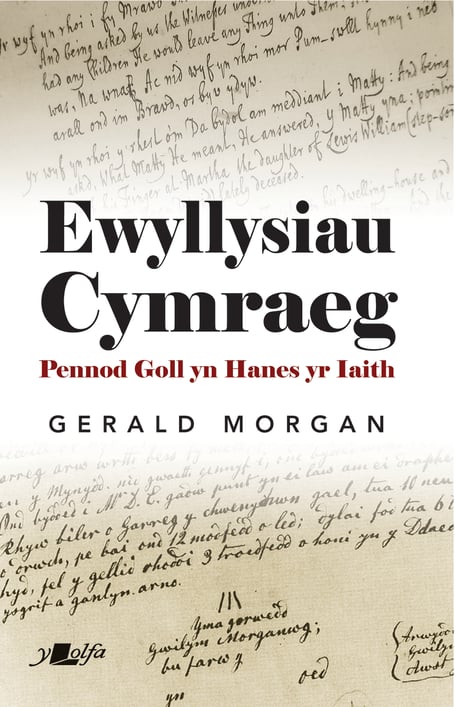LOCAL historian Gerald Morgan discloses a lost chapter in the history of the Welsh language in his latest book.
Before the 1990s, nobody understood that there were over a thousand Welsh-language legal documents hiding in the National Library of Wales.
These probate documents included wills, property lists and letters.
Ewyllysiau Cymraeg: Pennod Goll yn Hanes yr Iaith is an interesting and revealing book for several reasons, publishers Y Lolfa say.
“The book allows us to read the last words and wishes of some of Wales’ ordinary people from 1560 until 1858,” an Y Lolfa spokesperson explained.
Author Gerald , who lives in Aberystwyth, said: “I believe that this subject throws new light on a period in history.
“It shows a new attitude towards the relationship between English law and the Welsh language.”
It is often said that Welsh was banned as a legal language by the laws of 1535/42.
That’s true of the records of crime laws and civil cases. But the State Church had legal power, and an increasing number of people realised that they could write their wills in Welsh.
The church authorities realised that they would have to recognise these documents as legal documents; and so it was, and so it is today.
A large number of the wills were drafted orally by family or neighbours who were with the sick on their death bed.
It was a time when many were unable write, and many were unable to speak English.
The documents give a precious insight and are a means of studying the lives and families of people from the past – their furniture, their animals, their tools.
As in previous volumes, the author has shared a host of interesting and memorable stories as he takes us through the history.
Ewyllysiau Cymraeg by Gerald Morgan is available now (£9.99, Y Lolfa).





Comments
This article has no comments yet. Be the first to leave a comment.